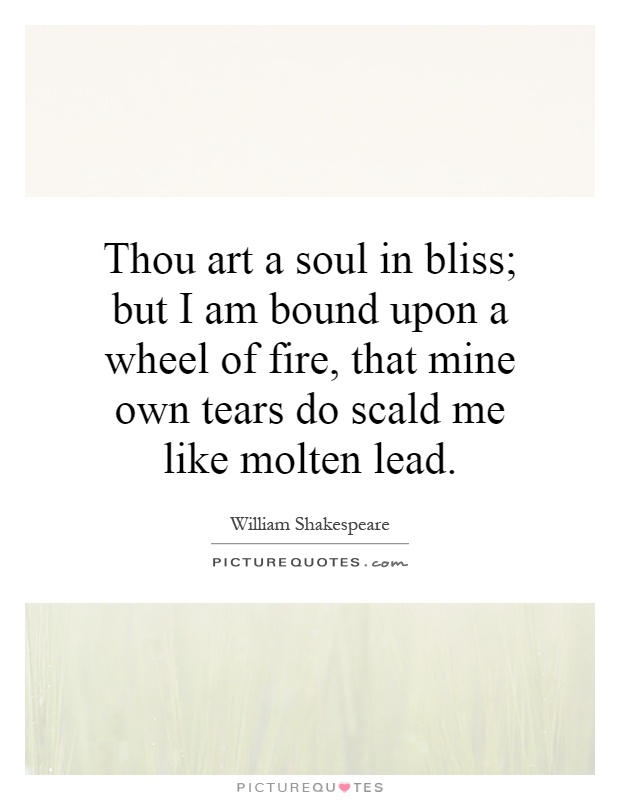Thou art a soul in bliss; but I am bound upon a wheel of fire, that mine own tears do scald me like molten lead

Thou art a soul in bliss; but I am bound upon a wheel of fire, that mine own tears do scald me like molten lead
The quote “Thou art a soul in bliss; but I am bound upon a wheel of fire, that mine own tears do scald me like molten lead” is a powerful and evocative expression of suffering and anguish. These words are spoken by the character Aaron in William Shakespeare’s play “Titus Andronicus”. Aaron is a villainous and manipulative character who revels in causing pain and chaos. In this quote, he is expressing his own torment and despair, contrasting his own suffering with the perceived happiness of others.The imagery of being bound upon a wheel of fire is a vivid and intense metaphor for the feeling of being trapped in a cycle of pain and torment. The image of fire conveys the idea of intense heat and burning, suggesting the overwhelming nature of Aaron’s suffering. The comparison of his tears to molten lead further emphasizes the idea of his pain being unbearable and destructive. Lead is a heavy and toxic metal, and the idea of tears scalding like molten lead suggests that Aaron’s suffering is not only emotional but also physical in nature.
The contrast between Aaron’s suffering and the bliss of others is also significant. The phrase “Thou art a soul in bliss” suggests that there are those who are happy and content, while Aaron is trapped in his own personal hell. This juxtaposition serves to highlight the depth of Aaron’s despair and isolation. It also underscores the theme of injustice and cruelty that runs throughout the play, as Aaron is a character who has been wronged and marginalized by society.
Overall, this quote from “Titus Andronicus” is a poignant and haunting expression of pain and suffering. Through the use of vivid imagery and powerful language, Shakespeare conveys the depth of Aaron’s despair and the intensity of his anguish. The quote serves as a reminder of the capacity for human suffering and the destructive power of emotions such as grief and despair.












 Friendship Quotes
Friendship Quotes Love Quotes
Love Quotes Life Quotes
Life Quotes Funny Quotes
Funny Quotes Motivational Quotes
Motivational Quotes Inspirational Quotes
Inspirational Quotes